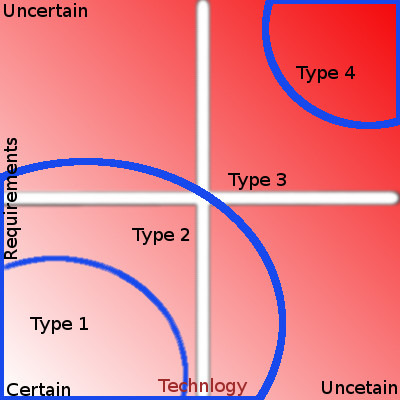
Agile Project Management#
Why Agile is popular in project management? We know that Agile practices are not new but the relevance of these practices in the 21st century is more. There are 200+ agile practices and all practices cannot be applied to all projects. Due to this reason experts have grouped agile practices and named those groups as different methodology. However the origin of agile project management is in the software industry, but in today’s business environment agile project management is suitable for every industry. Agile is a popular choice of organizations because of the perceived value of agile practices.
What is the Meaning of Agile?#
If you google the meaning of agile you will get these synonyms ” nimble, lithe, spry, supple, limber, sprightly, acrobatic, dexterous, deft”. I did dozens of surveys in my agile workshops and asked hundreds of participants there that what goes in your mind when somebody says the word “agile” to you. To my expectation, there was no single answer. Further, I asked them to write three paragraphs on the “meaning of agile for you”, “meaning of agile for your management” and “meaning of agile for your customer”. In summary, answers were mentioned below.
Participants says Meaning of Agile for me is.
- Flexibility to plan, no micro management, no documentation, develop final product quickly
Participants says Meaning of Agile for my management is.
- Quick delivery, more business, transparency, ability to change, no time waste in making exhaustive long term plan, self-organizing team, self-motivated team, team commit for delivery not for work
Participants says Meaning of Agile for customer is.
- Value for money, can prioritize and change features of product, transparency, early to market, fail fast, early problem detection, more involvement of business team in development
Agile is a project management approach that helps team and customer making a valuable product quickly. Agile project management comprises a range of methodologies all of which are built upon a set of core value statements and principles. Agile methods generally promote disciplined project management processes that encourage frequent inspection and adaptation, a leadership philosophy that encourages teamwork, self-organization, and accountability, a set of engineering best practices intended to allow for rapid delivery of high-quality software, and a business approach that aligns development with customer needs and company goals.
What is Agile project management?#
Project Management is the application of knowledge, skills, tools, and techniques to project activities to meet the project requirements (PMBOK). Definition of Agile Project Management should be an extension of this definition. Here the skills, tools, techniques, and knowledge are specific to managing those project which has agile characteristics. Design, build & delivery in agile is iterative and incremental. Agile project managers need to adopt service leadership which contrasts from bureaucratic or autocratic leadership. An agile project expects a highly motivated and matured team in place. A flat project organization structure rooted in the value of trust, openness, respect, communication is required to manage projects in an agile way.
What are the benefits of Agile project management (APM)?#
Agile project management is not a binary concept. It is not fair to say Project A is being managed using Agile Project Management and B not. APM is based on certain values & principles; defined in the agile manifesto. More close you are to those values and principles more agile you are and vice versa. More agile you are more get benefited. There are many benefits of managing projects using Agile methods some of those benefits are as below.
- More sense of satisfaction in the team
- Improved quality
- Improved decision making
- Reduced wastage
- Dynamic value prioritization of features (addressing changes)
- Improved productivity
- Improved trust and safety
- Increased speed
- Saving money (by not doing unwanted/ least wanted work)
- Increase Revenue (by early to market)
- Capability to quickly improve based on the end-user feedback
- Customer satisfaction
Is my project is suitable for Agile project management?#
We must understand Agile is not the silver bullet of all the problems of the projects. Secondly, even if it is needed to solve your project problem, it may not work till the time right value system, infrastructure is not in place. It may solve lots of your problem but you need to do lots of work before this work for you. In medical science terms, even the best medicine does not work on every patient, and in addition to this, patients also need to have lots of disciples while taking medicine. If change is not something that you are going to face in the project, then do not think about agile because the ROI of implementing agile is negligible in that case.

Above diagram is based on the Ralph Stacey’s complexity matrix
Type 1: Requirements & Technology both are certain. These are simple projects. Do not use agile project management for this kind of project. It is not worth spending time and money.
Type 2: Requirements are unstable and technology is complicated. These are complicated projects. These projects are best suited for agile project management. At one end those agile practices, which focus on breaking requirements into manageable pieces are adopted in these projects. At another end, those agile practices which allow more technology research, prototyping, and feedback are part of this kind of project.
Type 3: Requirements are not fully known and technology is new (not stabilized yet). These are complex projects. These projects are also the best candidates for agile project management. But you need to focus on specific agile practices to bring things under control with respect to the uncertainty aspect.
Type 4: Requirements are not known, technology is not known, the problem not properly defined. There is chaos, and the chaos project needs to be converted into a complex project by doing some research. No methodology will work for these kinds of projects till the time we bring some order of certainty.
The most appropriate projects for agile are ones with aggressive deadlines, a high degree of complexity, and a high degree of novelty (uniqueness). We want to use agile when we are doing something that is new, or at least new to the team building this product. If it’s something the team has done before over and over, then the team probably doesn’t need an agile approach.
What are agile project management skills?#
I do not recommend you become a scrum master or an agile project manager of the same team for which you have been a project manager earlier. The reason for this is the relationship between you and your team. For a long time, the team has been looking towards you as their commander. They wait for your command and control to start and stop the work. This approach is anti-agile. It is not easy for any team or manager to break this mental block in a couple of days even after a great training. So it is better to move into another team. As an agile project manager you should take care of the following.
- Be a servant leader and help in creating a productive environment for the team.
- Do not micro-manage the team.
- Do not ask report and status. But encourage the team to share the information within the team and update their work status voluntarily on some information radiator system
- Be a mentor for the team. Help them understand the values of practices rather than forcing them to follow processes
- Do not encourage heroism in the team, continuously put the effort into creating a winning team
- Protect team from the distractions of the environment. Distraction may be management meetings, reporting, convincing management, negotiating with management about the project work, infrastructure unavailability, dependency on someone.
- Help product owner in understanding his/her responsibilities.
- Help team in understanding & incorporating each and every agile value and principle


Comments: